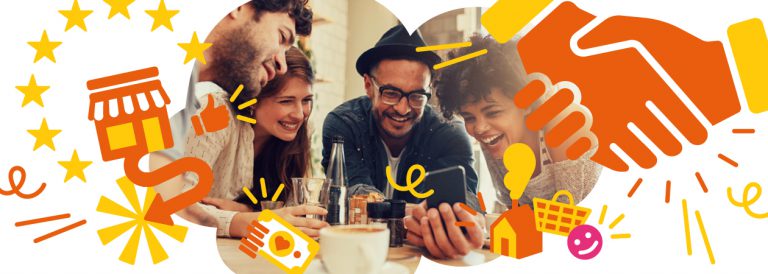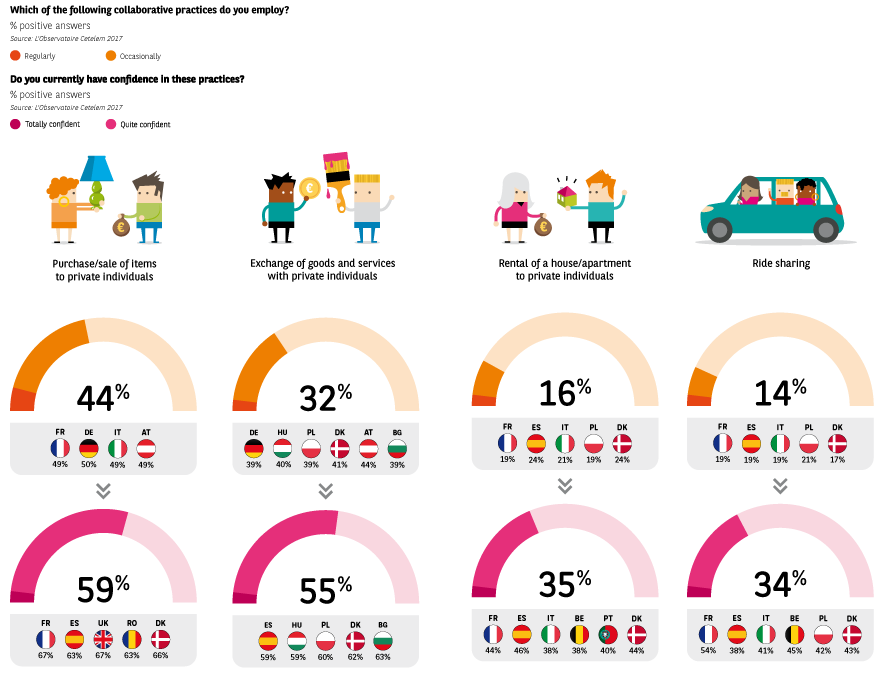The sharing economy is founded on confidence


The number one collaborative practice among Europeans interviewed for L’Observatoire Cetelem 2017 de la Consommation is peer-to-peer buying and selling of goods (44%), followed by the exchange of goods and services (32%), house and apartment rental (16%) and ride sharing (14%). But most of all, the survey’s respondents display a certain amount of confidence in these new consumption models, which place the emphasis on direct consumer interaction. More than one in two Europeans buy, sell or exchange goods and services in total confidence. A level of confidence that very few institutions are able to generate.
In any case, as previously highlighted, the “digitalization” of communication is in no way an obstacle, because it enables transactions between individuals who are very real. And even when these peer-to-peer transactions are conducted via sites offering greater anonymity, confidence remains high. 59% of Europeans believe that their personal data is protected and 65% trust that this is the case for their bank details.
Consumer thoughts
« I am totally in favour of collaborative practices, as I believe they give consumers more power. »

